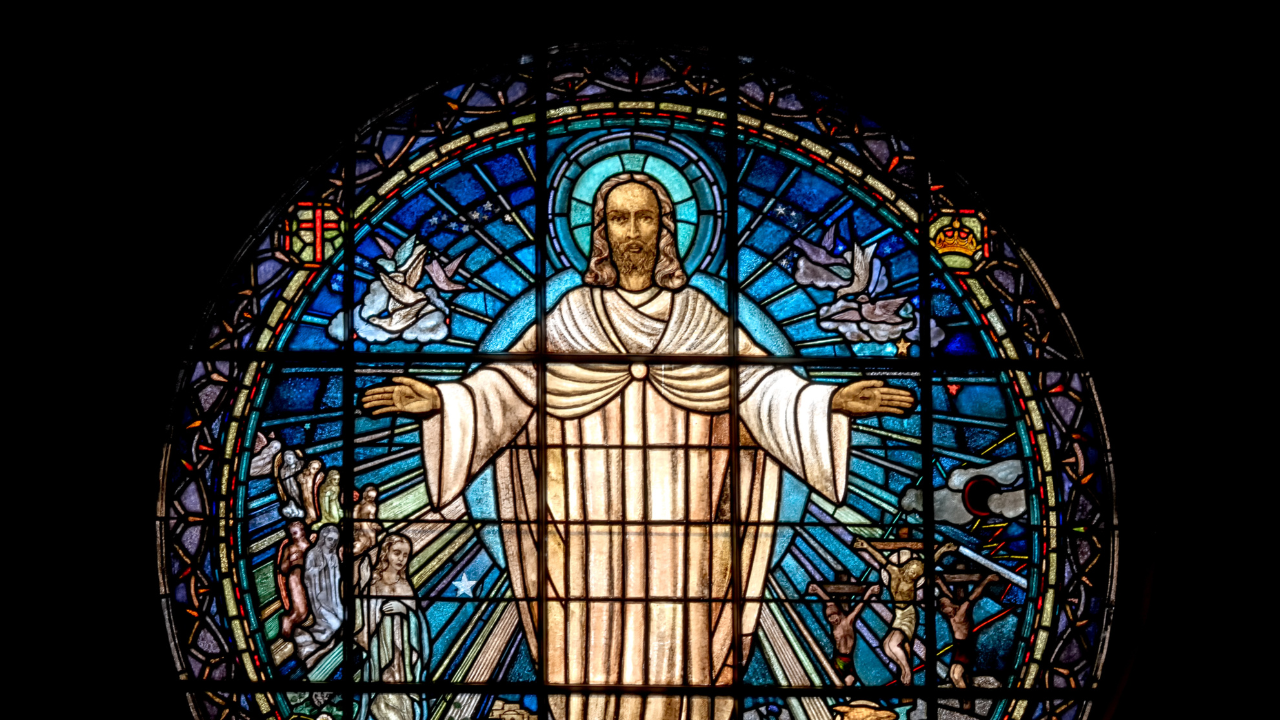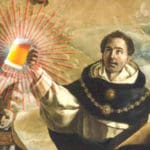John’s Gospel portrays Jesus as divine. Matthew, Mark, and Luke seem to see Him as only human. Since John was the last Gospel written, some scholars claim that the divinity of Jesus is a later invention.
However, Jesus does claim divinity in the first three gospels. You just need to approach the text with the eyes of the Jews and pagans of the time.
Here are three often-missed passages where Jesus makes it clear that He is God.
1. Jesus calms the sea.
Matthew, Mark, and Luke all record Jesus stopping a storm that threatened to overturn the boat He and His apostles were traveling in. Here’s how Matthew 4:37-41 recounts the event:
“And a great storm of wind arose, and the waves beat into the boat, so that the boat was already filling. But he [Jesus] was in the stern, asleep on the cushion; and they woke him and said to him, ‘Teacher, do you not care if we perish?’ And he awoke and rebuked the wind, and said to the sea, ‘Peace! Be still!’ And the wind ceased, and there was a great calm. He said to them, ‘Why are you afraid? Have you no faith?’ And they were filled with awe, and said to one another, ‘Who then is this, that even wind and sea obey him?’”
Now, put on your ancient glasses and consider this passage from the standpoint of the ancients.
For the Jews, these passages called to mind Psalm 107: “Then they cried to the Lord in their trouble, and he delivered them from their distress; he made the storm be still, and the waves of the sea were hushed.”
Who, according to the Psalmist, has the power over the wind and sea? Only God Himself. The Jews memorized the Psalms and many would have instantly seen the connection.
The Romans had Jupiter, who ruled the winds, and Neptune, the lord of the seas. The pagans too would have seen Jesus’s act as an assertion of divinity.
2. Jesus overrules Moses.
In Jesus’ Sermon on the Mount in Matthew 5, there are the famous five antitheses. For example: “You have heard that it was said to the men of old, ‘You shall not kill; and whoever kills shall be liable to judgment.’ But I say to you that every one who is angry with his brother shall be liable to judgment.”
Five times in this chapter, Jesus either corrects a misinterpretation of the Law of Moses or corrects the Law itself.
For the Jews, no one had more authority than Moses other than God Himself. Jesus presumed to correct Moses, which the Jews saw as a claim to divinity.
3. Jesus calls Himself the Son of Man.
Many people misinterpret the Jewish phrase “Son of Man.” Jesus wasn’t claiming to be a Joe Six-Pack when He called Himself this.
Chapter 7 of the Book of Daniel introduces the Son of Man: “I saw in the night visions, and behold, with the clouds of heaven there came one like a son of man, and he came to the Ancient of Days and was presented before him.” What does that mean? Psalm 18 says that the Lord rides on the clouds.
Now view Jesus’s words through the lens of the Old Testament. Jews would have thought of Daniel 7 and Psalm 18 when Jesus called Himself the Son of Man. The high priest in Jerusalem certainly held this interpretation:
“Again the high priest asked him, ‘Are you the Christ, the Son of the Blessed?’ And Jesus said, ‘I am; and you will see the Son of man sitting at the right hand of Power, and coming with the clouds of heaven.’ And the high priest tore his mantle, and said, ‘Why do we still need witnesses? You have heard his blasphemy. What is your decision?’ And they all condemned him as deserving death. And some began to spit on him, and to cover his face, and to strike him, saying to him, ‘Prophesy!’ And the guards received him with blows” (Mark 14:61-65).
Even the pagans would have recognized this claim to divinity, since Zeus also rode on the clouds.
As you can see, Jesus makes Himself out to be God all through the Gospels, but usually by dropping strong hints for us to piece together. We need to understand the culture of His time to clearly interpret His words.
To His question to Simon Peter, “Who do you say I am?,” the Gospels unequivocally answer, “The Lord our God!”







